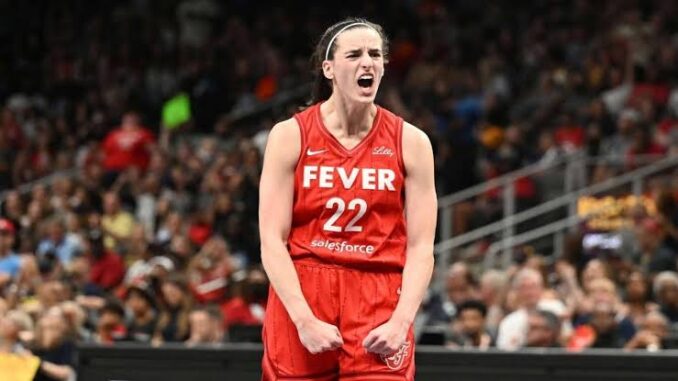
Caitlin Clark, the Indiana Fever’s standout guard, has rapidly become a transformative figure in the WNBA, igniting discussions about player compensation and league structure. Her agent, Erin Kane, recently highlighted the disparity between Clark’s economic contributions and her current earnings, emphasizing the need for systemic changes within the league.
Economic Contributions vs. Earnings
In her rookie season, Clark’s dynamic performances not only elevated the Fever’s standings but also significantly boosted the WNBA’s viewership and attendance. The Fever led the league with an average attendance of 17,000 fans per game, and 31 games across the league surpassed the one million viewer mark, a testament to Clark’s widespread appeal. Economically, her presence generated an estimated $36 million impact for Indianapolis. Despite these impressive figures, Clark’s salary for the 2025 season stands at just over $78,000. Kane argues that this discrepancy underscores a broader issue within the WNBA’s compensation structure, where player salaries do not align with their market value and contributions.
Calls for Structural Changes
The WNBA Players Association (WNBPA) has recently opted out of its current collective bargaining agreement, signaling a push for improved salaries and benefits in upcoming negotiations. Kane advocates for a reevaluation of the league’s financial model, suggesting that the WNBA might benefit from operating independently of the NBA to prioritize its unique interests and growth. This perspective stems from the belief that the current affiliation may not fully serve the WNBA’s potential for expansion and fair player compensation.
Comparisons and Cultural Impact
Clark’s influence extends beyond the basketball court. Fever’s head coach, Stephanie White, likened her to “Taylor Swift 2.0,” highlighting her ability to draw massive crowds and her humble approach to fame. This comparison underscores Clark’s role in elevating women’s basketball to unprecedented levels of popularity and cultural relevance.
Looking Ahead
As the WNBA approaches its new media rights deal, expected to increase annual revenue from $60 million to $200 million, there is cautious optimism that player salaries will see significant enhancements. For athletes like Clark, whose impact on and off the court is undeniable, the hope is that forthcoming negotiations will lead to compensation that accurately reflects their value to the league and its communities.
In summary, Caitlin Clark’s remarkable contributions have not only revitalized the Indiana Fever but have also sparked essential conversations about fair compensation and the future structure of the WNBA. Her case exemplifies the pressing need to align player earnings with their substantial economic and cultural impact.
Be the first to comment